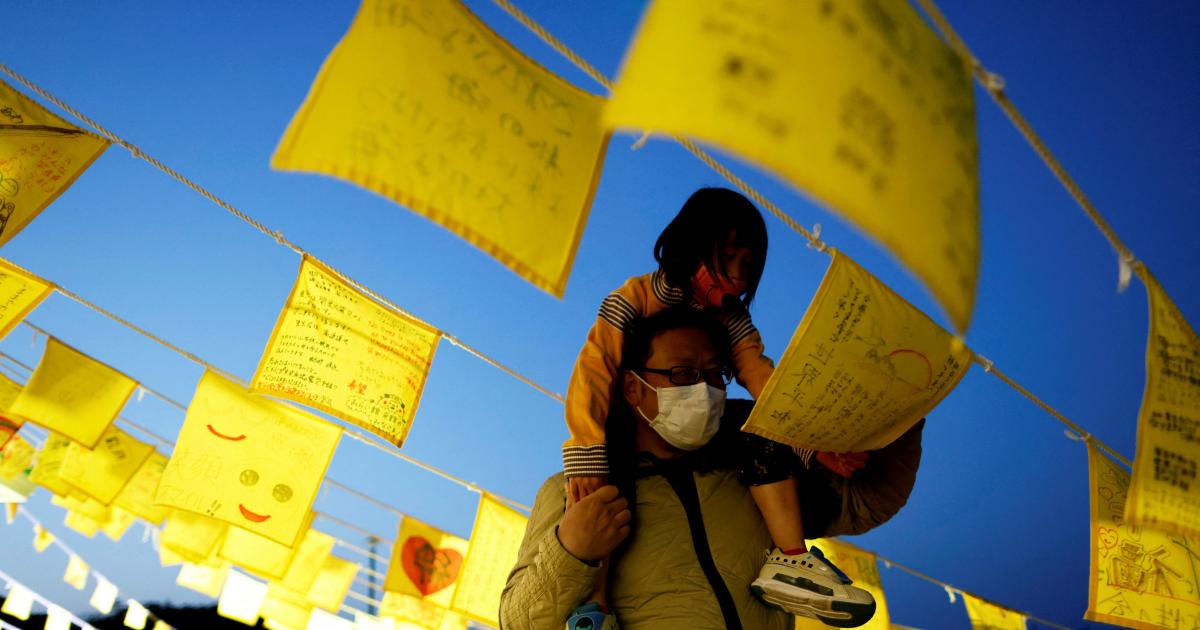Fukushima commemorates this Saturday the twelfth anniversary of the earthquake and tsunami which devastated the country’s northeast and caused a nuclear crisis that is still recovering and reminded the nation that water discharge problems from the damaged factory “affect all of Japan”.
“I know that there are voices of concern not only in Japan and Fukushima, but in more parts of the world. What we have conveyed to the central government is that this is not a Fukushima problem, but a problem for all of Japan,” explained the prefectural governor, Masao Uchibori, during a press conference at the Foreign Press Center of Japan (FPCJ, in English).
Twelve years after the natural disaster, that is causing 15,900 deaths and 2,523 missingFukushima continues to face “significant challenges”, including the future discharge of treated water from the Fukushima Daiichi nuclear power plant into the Pacific Ocean, which has generated controversy among local residents and neighboring countries.
“Recovery and reconstruction after a nuclear accident is a situation we have never experienced before and it is very difficult. What we are asking the government to do is act responsibly and share scientifically based information,” added Uchibori.
The governor’s reaction comes after the Japanese Executive approved it in early January revised plans to dump contaminated water into the Pacific in the coming months and treated that accumulate in the factory.
This water is currently treated in a circuit called ALPS (Advanced Liquid Processing System) to remove 62 types of radioactive materials, except tritium.
Residents of the region and several Pacific nations have protested this decision, stating that the data provided by Japan was “insufficient” to be able to evaluate the decision. impact on human health and the marine environment.
Fading memory
A decade after the disaster, the region is also worried that his memory will fade following the recent announcement of a change in government policy regarding reactivation of power plants and extending the useful life of their reactors beyond 60 years.
“For the past 12 years, we have been fighting against this series of disasters, but we feel the memory of what happened is starting to fade,” Uchibori said, referring to the physical impact of the earthquake and tsunami, the nuclear disaster as well as the bad reputation that has been associated with the area.
In recent years, several countries such as United States of America o The UK has lifted sanctions regarding imports of products from Fukushima and the region is also working to develop its agricultural and livestock sectors.
However, more than 300 square kilometers of land in six cities of the prefecture, including Katsurao, Okuma, and Futaba, are still classified “tough zone back”, and his rehabilitation is still uncertain.
In Futaba, for example, a government survey conducted last year showed that around 60.5% of former residents had no intention of returning, up from 11.3% who wished to return.
“The use of nuclear energy and nuclear policy is something the Government should consider on its own accord, but with the lessons learned from the 2011 accident and prioritizing human safety above all else,” the governor explained.
Solve water spills, completely dismantle plants, revitalizing the region’s economy and bringing back its former residents continue to be some of the challenges facing this prefecture, still tinged with the stigma associated with what happened.
“Twelve years ago, the people living in this area suddenly had to leave their homes. Some were very old and others had no means of transportation or relatives nearby, so they suffered greatly. About 27,000 people are still displacedUchibori concluded.

“Internet trailblazer. Troublemaker. Passionate alcohol lover. Beer advocate. Zombie ninja.”







